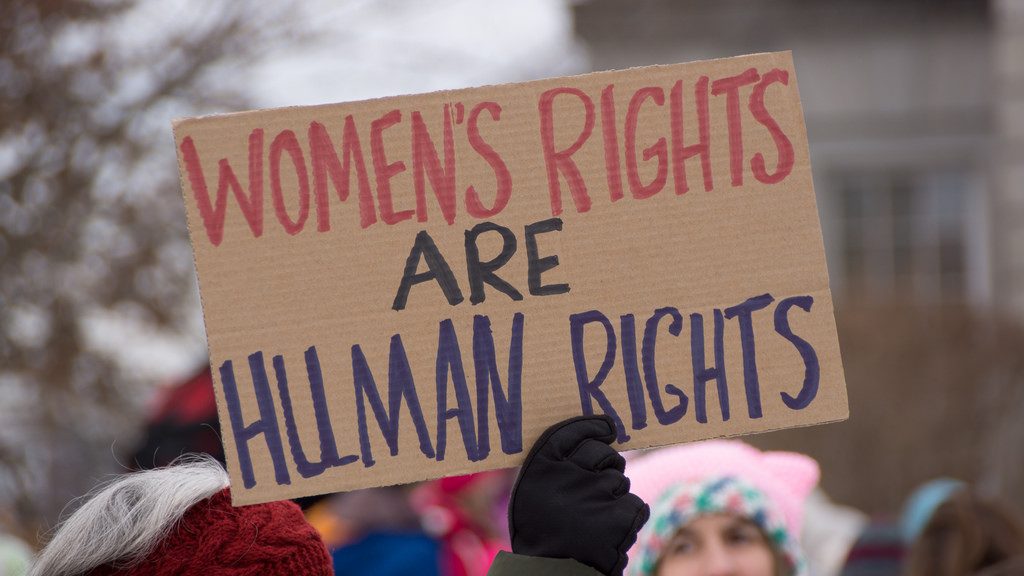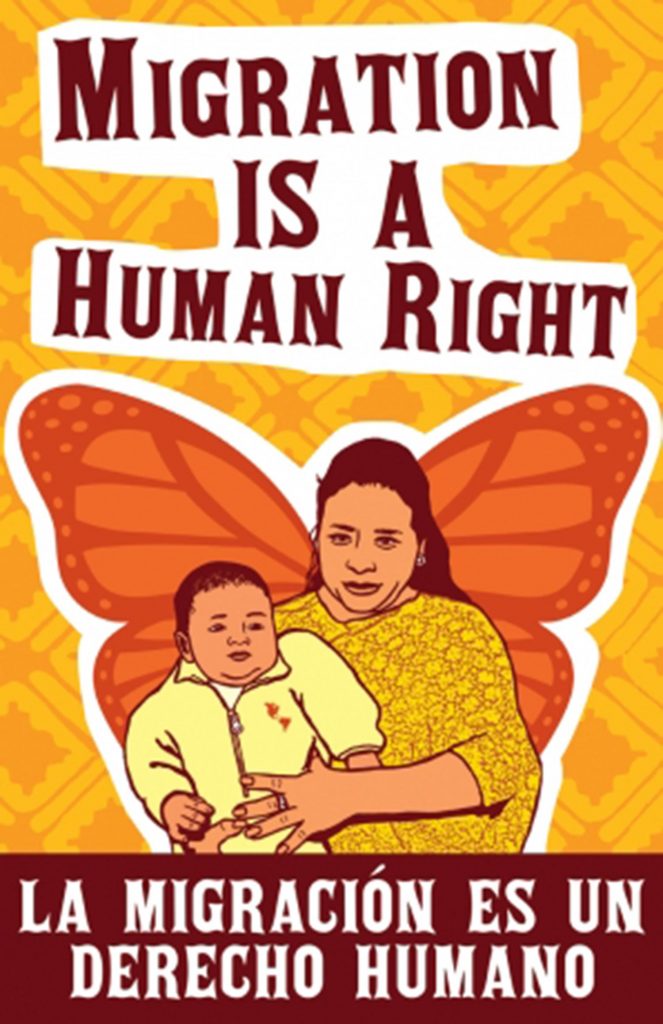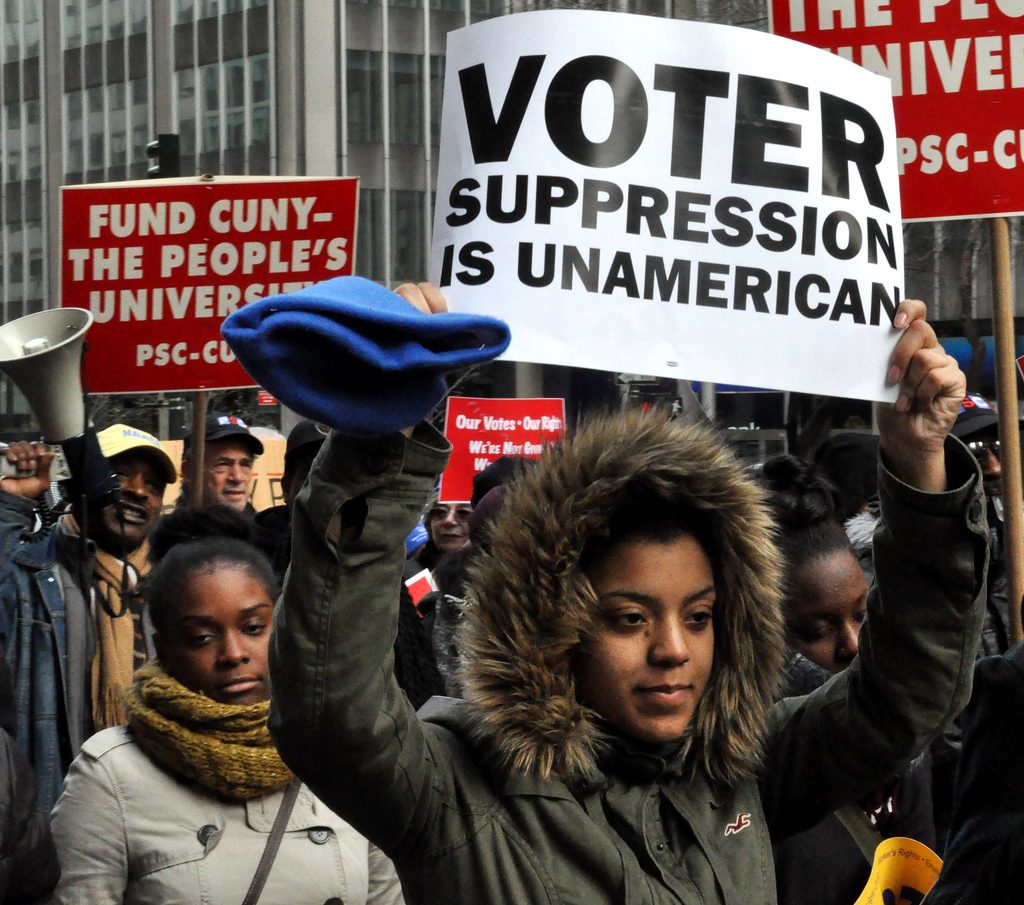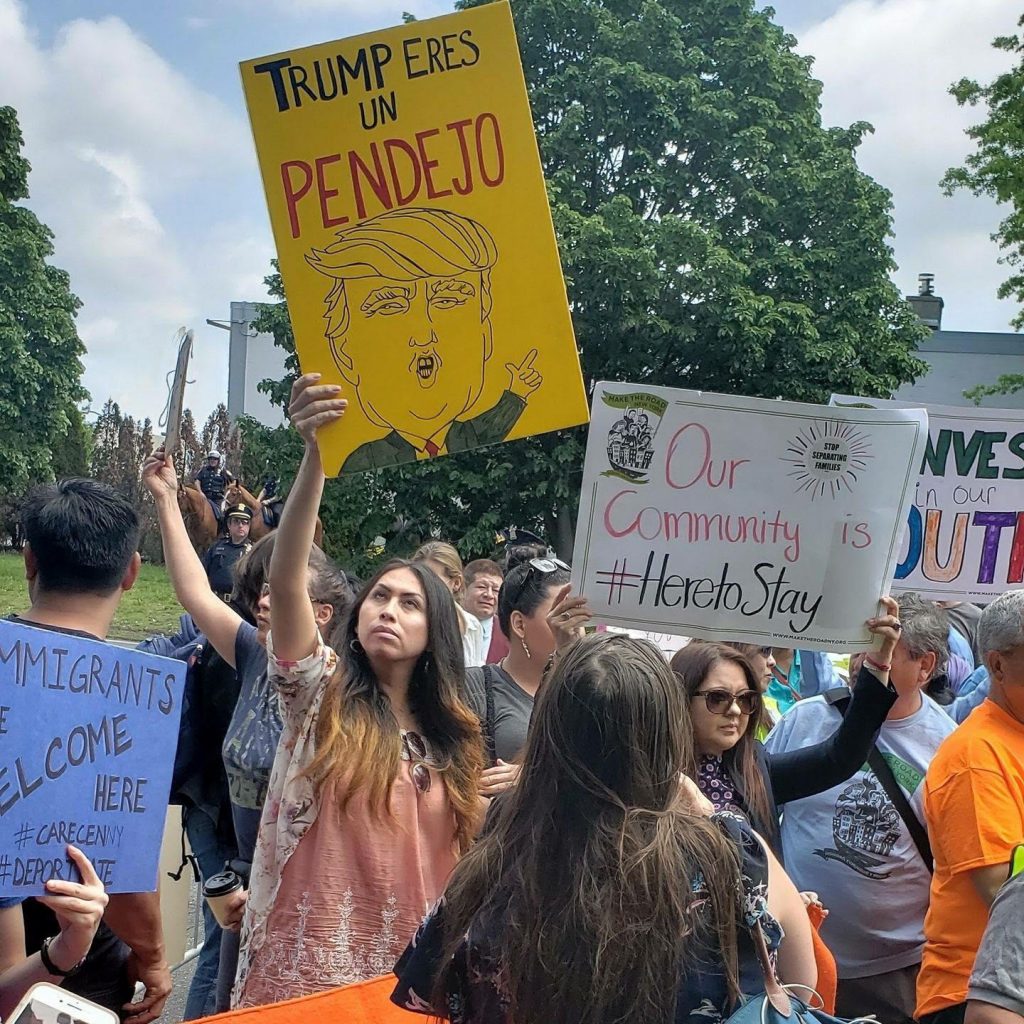Editors Note: Justice in Review is an annual reflect back at social justice issues from the year. Below are some of the issues that we saw in 2018 which we need to act on in 2019. This is by no means an exhaustive list, but a good start. What are some issues you are working on or you would like us to lift up? Email us at editors@staging.lawatthemargins.com
Medicare for All
Demands:
- Removal of preexisting conditions
- Push towards single payer healthcare
- Removal of employment as precondition for healthcare
Seventy percent of Americans support Medicare for All, an issue that almost two-thirds of the incoming House Democrats campaigned on. The push towards single payer healthcare is backed by new studies that support the idea that the United States would save over $5.1 trillion over a decade if it made the switch.
The numbers are favorable for those in the fight to achieve universal healthcare, but the program shouldn’t solely be evaluated on the economic impact. As it stands, 28 million people are uninsured and 85 million are underinsured, with out-of-pocket costs prohibiting them from seeking necessary care. Universal health care not only helps folks with “pre-existing conditions” receive better regular treatment and medication, it helps doctors catch cancers and other compounding illnesses before they spiral out of control.
The OHCHR, WHO and other international organizations have recognized healthcare as a human right. On Human Rights Day last year, the World Health Organization released a statement that directed “the right to health for all people means that everyone should have access to the health services they need, when and where they need them, without suffering financial hardship.” No one, they said, should die because they are ill and poor.
As an issue that cuts across party lines, the hopes to achieve universal healthcare in the United States seems more attainable than ever.
#MeToo
Demands:
- Recognition of bodily autonomy
- Cessation of rape culture
- Restoration of sexual/reproductive rights to State Department website
- Overturning of Becerra
2018 saw a radical restructuring of gender and social norms, as women across the country demanded that powerful individuals be held accountable for their predatory actions. Women demanded bodily autonomy and fought to keep Brett Kavanaugh off of the Supreme Court.
The fight forward, however, was met with continuous resistance.
NIFLA v. Becerra, the appointment of Brett Kavanaugh and the continued presidency of Donald Trump has created a target on women in 2018. Women have been denied the ability to access information about their reproductive health, been denied the ability to claim asylum based on domestic violence and fought time and time again against “heartbeat” bills.

The Trump Administration has made its stance against women clear: a woman does not have rights to her own body. Earlier this year, the reproductive rights subsection from the Department of State’s 2017 Country Reports on Human Rights Practices was removed. The DOS has ignored FOIA requests from the Center for Constitutional Rights seeking information on why the Trump Administration official decided to unilaterally remove this information.
The nonstop assault on women’s rights has continued and worsened. The Ohio House passed a bill to criminalize abortions with the death penalty (but was shuttered in the Senate), Iowa has a version of a “fetal heartbeat bill,” and North Dakota attempted the same in 2013. Over a dozen cases are pending in state courts, many of which could head to the Supreme Court, threatening the steadfastness of Roe.
Trump’s legitimacy and the legitimacy of his misogynistic actions are only emboldened as sexual assault allegations against him and his administration officials come to light and are met with silence.
Immigrants’ Rights
Demands:
- Restoration of legal asylum claims under the Refugee Convention and Matter of ACM/ARCG
- Immediate disbanding of ICE
- Cessation of expansion and militarization of detention camps for children
Through nationalism and nativist-inspired policies, Trump consistently incites terror in immigrant and refugee communities. Trump’s Family Separation policy at the border forcibly separated young children from their families, with many still in “foster” homes in the United States after their parents were deported. Hundreds are unaccounted for and thousands remain in child detention camps in Texas. The expansion and militarization of the border and the holding cells in which immigrants are detained must stop.
Earlier this year, Jeff Sessions reversed a 2014 decision that granted asylum to a Guatemalan woman who fled domestic abuse. The overturning of the case was debilitating and rooted in patriarchy by questioning validity and seriousness of abuse.

The ruling is even crueler when taken in tandem with the family separation and child kidnapping that continues to occur at the border. The detention of migrant children has skyrocketed to the highest levels ever. While the original family separation policy has since ended, a new “family separation 2.0” offers a binary choice. Families can wait with their children in detention for months or years as their cases wind through the confusing and backlogged immigration system, or they can give up their children to the government.
Immigrants’ rights activists, attorneys and legal workers have mobilized on the border, providing what services they can. However, many individuals fleeing gang violence, domestic abuse and economic hardship are left languishing on the Mexican border, awaiting their turn to apply for asylum, a clear violation of immigration law that allows individuals to apply for asylum once already in the United States..
Police Brutality and Unchecked Aggression
Demands:
- Demilitarize police units
- Label police brutality as a public health issue
- Increase accountability for unchecked violence against black communities
ACLU reports that a Pew Research Center poll released in 2017 found that two-thirds of the nation’s police officers believe the deaths of Black Americans during encounters with police are isolated incidents and not an indication of broader, systemic problems.The unrestrained use of police force against black and communities of color is a public health issue, and is an issue that must be addressed swiftly.
In virtually every state, police forces have brutalized or killed individuals that they were supposed to protect. Lisa H. Thurau, executive director of Strategies for Youth, and Johanna Wald, former director of strategic planning for the Charles Hamilton Houston Institute at Harvard Law School, outlined that using a public health perspective would mean more than the prosecution of a single police officer. It would mean that the system of hiring, training and evaluating policies officers would radically change, and each officer would undergo training on the effects of trauma, violence and poverty on behaviors. It would include ending the government’s program that provides military weaponry to local police department and establishing weapons to prevent police departments from purchasing said weaponry, as demanded by Campaign Zero.
It includes fighting secrecy in police departments and making disciplinary measures more transparent to promote trust and accountability in communities. New York’s highest court denied to make disciplinary records of police officers public, citing an obscure law that claims to restrict said records. Without transparency, there is no accountability.

Image from New York Times. Photo by Jacqueline Jenkins. The trauma endured by Jazmine Headley and her 1-year old son made headlines after public outcry resulted from law enforcement personnel forcibly ripping her son from her arms. It took days for New York Mayor Bill de Blasio to decry and condemn the violent and traumatic actions of the police officers.
Pro-Palestinian Policies
Demands:
- Push for more progressive political agenda on Palestine
- Denial of foreign aid to Israel in conjunction with Leahy Law
- End anti-BDS legislation that infringes on individuals’ freedom of speech
Recently, we discussed the shift towards a more progressive Palestinian policy and whether pro-Palestinian politicians were politically viable. All of the candidates we discussed won. Rashida Tlaib, originally endorsed by J Street, has declined the AIPAC sponsored trip to Israel and, instead, is leading her own delegation to Palestine. Ilhan Omar, one of the only politicians to have ever openly supported the Boycott, Divest and Sanction movement, won her election and continues to promote her progressive policies. Alexandria Ocasio-Cortez, while stumbling early in her political career, has shown promising moves towards a more progressive Palestinian policy.

“For a long time, the American left has fallen short on supporting Palestinian rights. White Americans on the left have consistently tried to keep discussions about Palestine out of leftist discussions.” – Suzanne Adely
Most recently, Mark Hill was fired from CNN for calling out Israel’s human rights violations. Bahia Amawi, a speech pathologist in Austin, Texas, was recently fired after she refused to signed an agreement in her contract that she “does not” and “will not” engage in boycott of Israel. She is now suing. And while lawmakers considered adding a measure to the spending bill that would prevent boycotts against Israel, public outcry is growing.
Small, seemingly undetected shifts have continued to slowly alter our political climate, and the human rights crisis in Israel has helped expedite this movement.Palestinian support is not only changing in terms of political and public discourse, but its legal protections are expanding and anti-BDS legislation and demands are being challenged.
Climate Change
Demands:
- Demand an end to fracking and installation of new pipelines
- End criminalization of environmental activists
- Uphold the standards of the Paris Climate Accord
- Adoption of the New Green Deal
Negative government reaction to climate activism has increased. While strikingly visible in the #NoDAPL activists, the crackdown has continued, particularly in vulnerable areas with marginalized communities. Truthout cited Kelsey Skaggs, executive director of the Climate Defense Project: “This crackdown is happening because activists have been successful, and because industry realizes that protest is a threat…We’ve seen it begin, and now we’ve seen it worsen.” As recently as this month, several environmental protestors were arrested at the U.S. Capitol after demanding progress for the New Green Deal.
The Sunrise Movement and Justice Democrats organized a sit in at Nancy Pelosi’s office not once, but twice, to demand a sustainable infrastructure project for the future. More than 20 members of Congress have called for a committee dedicated to developing a draft deal. The new Democratic representatives are so unified that Chuck Schumer informed Donald Trump that the Democrats will not support any infrastructure bill unless it’s a green, New Deal-esque bill.
Corporate interests in pipelines and fracking continue to wreck havoc on communities, but recent court rulings are starting to question who is taking the brunt of environmental hazards and disasters. A Louisiana judge recently found against the Bayou Bridge Pipeline Company, which constructed an oil pipeline in the Atchafalaya Basin by trespassing on landowners’ property. While the judge allowed the corporation to continue forward and the damages awarded to the plaintiffs was a meager $150, recognition of the company’s wrongdoing is a start in the right direction. In August, a Canadian court sided with environmentalists and indigenous groups that put a stop to the Trans Mountain Pipeline expansion project.
While making progress domestically, Donald Trump has claimed that the concept of climate change was devised “by and for the Chinese in order to make U.S. manufacturing noncompetitive,” and made good on his promise to give notice of United States withdrawal from the agreement during his first 100 days in office. The only other two nations to reject participation in the global pledge were Nicaragua and Syria, and even they eventually signed on to the agreement. While there is no way for the US or any other country to withdraw from Paris until four years after it went into effect, the implications of the United States, the second-highest emitter of global carbon emissions, not maintaining its commitment to combatting climate change is disastrous.
US Foreign Intervention
Demands
- Hold the United States government accountable for violations of international humanitarian law
- End interventionist and neocolonial policies that perpetuate violence
Foreign policy issues have consistently stormed news headlines, particularly in the latter part of the year after the death of Jamal Khashoggi and the ongoing crisis in Yemen. Even more so after the US withdrew from the U.N. Human Rights Council, the United States cannot claim it is a champion of human rights if it continually takes actions in the international arena that undermine social justice and human rights globally.
The crisis in Yemen is complicated, with many citing the Day of Rage in January 2014 as the beginning of the tumultuous conflict. Now, almost five years later, approximately 22.2 million Yemenis rely on humanitarian assistance in order to survive.
This year, for the first time in the 45-year history of the War Powers Act, senators passed a resolution that would end a war. Many believe that this achievement was a direct result of activists placing pressure on their senators, particularly because in March, senators voted 55-44 against bringing the same resolution to the floor.
The post-9/11 world has created a veil of secrecy around US involvement and the extent of said involvement in international wars and conflicts. Congress has repeatedly deferred its decision-making to the executive branch, allowing the President to exercise war powers indefinitely and unchecked.
As conflicts, global epidemics and global climate change continue relentlessly, United States foreign policy has remained unchanged. With new progressive Democrats in the House, many believe that the time for progressive foreign policy has arrived.
Regardless of whether foreign policy will change in the future, international human rights and humanitarian issues have taken a more prominent role in organizing in the US. The US-Mexico border crisis, Yemen and Palestine’s humanitarian disasters and the ongoing conflict in Syria have consistently been used as mobilization tools to change how we approach social justice globally.
Voting Rights and Disenfranchisement
- Eradicate exact match and voter purges
- Restore the Voting Rights Act
- End partisan gerrymandering
LaTosha Brown, co-founder of Black Voters Matters, told us in our #GlobalFeminist series: If 51% of our population is women, why isn’t that reflected in political leadership and representation? We know we have work to do because the sheer numbers show that women are underrepresented. When people are looking to control our bodies and what we do with our bodies, looking at unequal pay and policies that impact women at a disproportionate rate, voting rights is key and center. If you’re marginalizing women’s voices, you’re marginalizing the power to change and transform sexist and biased policies.”
Voter ID laws, gerrymandering and voter roll purges are all tactics brought into the 21st century to silence black voters. The disenfranchisement that stormed the news in Georgia wasn’t the only example of unfair, biased and racist disenfranchisement efforts in 2018, and Brian Kemp wasn’t the only Secretary of State overseeing his own election. Elected Secretaries of State in Georgia, Kansas and Ohio were running for higher office while still maintaining their title and position as SOS.

Many states are taking drastic, unchecked measures to ensure that voters are unable to cast their votes. A section of the 1965 Voting Rights Act, which was designed to protect minority voters from state disenfranchisement, was struck down by the Supreme Court in 2013. The invalidation of the section allows states to make changes affecting voting without first getting federal approval. With non-white voters being about two and a half to six times more likely than white voters to lack photo IDs, one can imagine why so many states passed voter ID, exact match and other burdensome restrictions on voting.
Republicans have ensured that, even if minority voters are able to exercise their Constitutionally-protected right, that many of the seats they hold in Congress will be protected. The Brennan Center for Justice estimates that Republican gerrymandering accounts for sixteen or seventeen GOP seats in the current Congress that the party might not otherwise control.
LGBT+
Demands
- Increased protections in schools and workplace
- Access to housing, shelters and safe spaces
- Access to affirming healthcare
This year, the Trump Administration considered narrowly defining gender as a biological, immutable condition determined by genitalia at birth. The memo would have eradicated federal recognition of the estimated 1.4 million Americans who have opted to recognize themselves -surgically or otherwise – as a gender other than the one they were born into. It could also exclude transgender people from existing federal civil rights protections in education, employment and access to health care. The memo resulted in a ferocious campaign against the memo, culminating with #WontBeErased and multiple rallies across the nation. Masen Davis, the chief executive of Freedom for All Americans said “This is not a red or blue issue; this is a human issue.”

The memo states “the sex listed on a person’s birth certificate, as originally issued, shall constitute definitive proof of a person’s sex unless rebutted by reliable genetic evidence.” In addition to the memo, Jeff Sessions previously reversed guidance that protected transgender workers from employment discrimination and Trump has signed a directive banning transgender military recruits that is currently winding its way through the District of Columbia Circuit Court.
On December 10, the U.S. Court of Appeal for DC’s Circuit heard government appeals in Doe v. Trump, in which the lower Court decided that that Pentagon had to comply with previous DoD policy allowing transgender recruits to enlist by Jan 1., 2018. Attorneys representing the transgender plaintiffs have until December 24th to file their response to the White House’s request last week that the Supreme Court take up the transgender military service ban. The Supreme Court will have to decide by January 18 whether it will weigh in during this term. U.S. District Judge Jesus Bernal said :The military has repeatedly proven its capacity to adapt and grow stronger specifically by the inclusion of these individuals,” dismissing claims that including transgender people would generate any different outcome.




